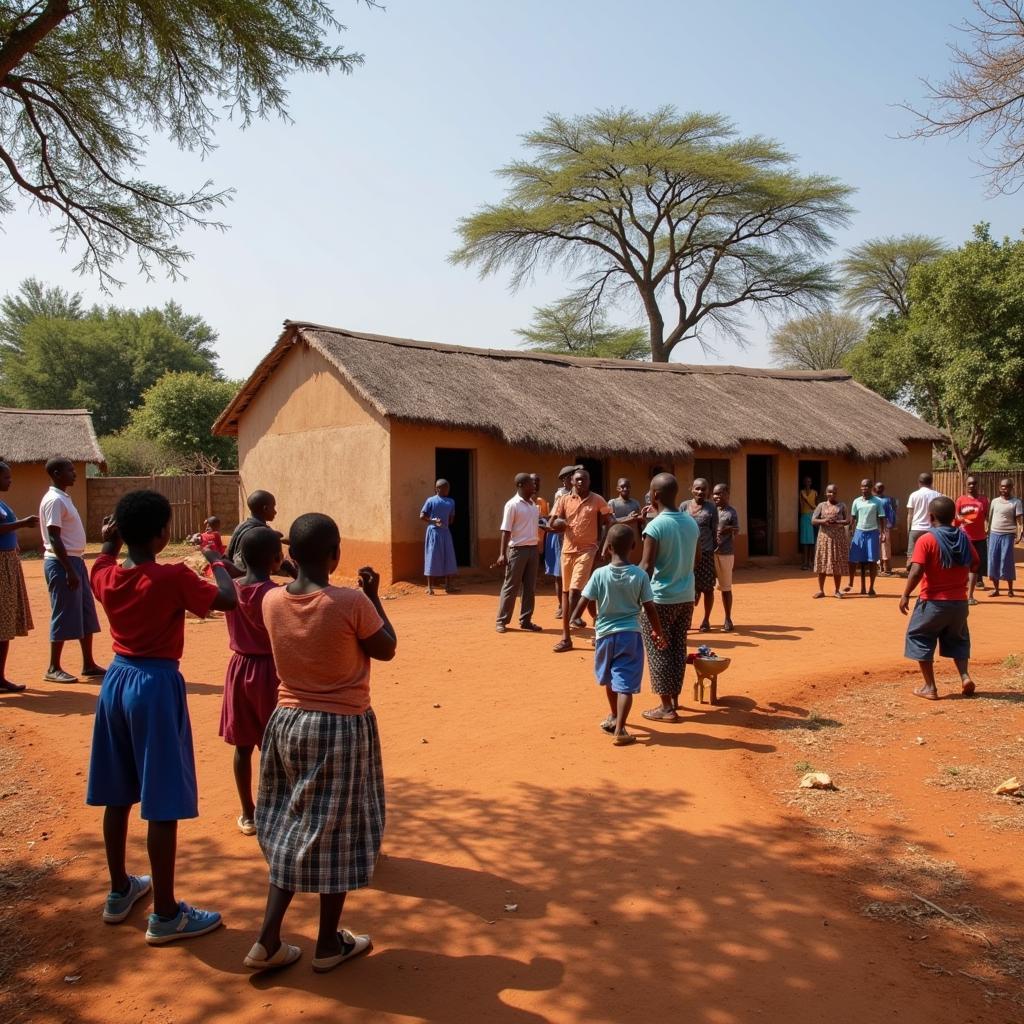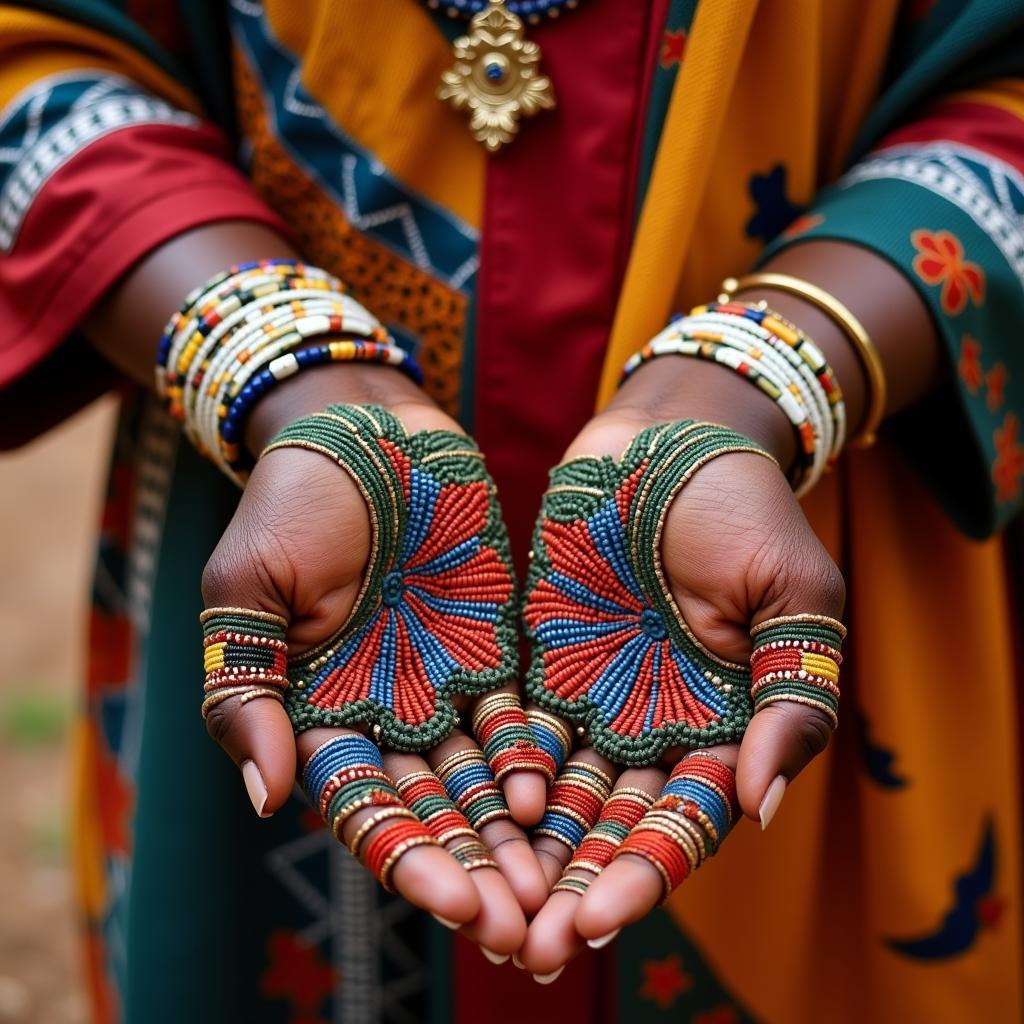The Complex Reality of African Drug Dealers
The term “African Drug Dealers” evokes a simplified and often misleading image. This article delves into the complexities behind this phrase, exploring the socio-economic factors, historical context, and the individuals caught within the web of drug trafficking in Africa. We will examine the nuanced reality beyond the stereotypes, providing a more informed understanding of this multifaceted issue.
Unpacking the Stereotype of African Drug Dealers
The image conjured by the term “African drug dealers” is frequently a product of media portrayals and pre-existing biases. This simplified narrative often fails to acknowledge the complex interplay of poverty, corruption, and global demand that fuels the drug trade. Reducing individuals to a single label ignores the intricate web of circumstances that drive them to participate in such illicit activities. It’s crucial to look beyond the surface and understand the underlying issues that contribute to this complex problem.
Poverty and Lack of Opportunity: A Breeding Ground for Drug Trafficking
In many African nations, widespread poverty and limited economic opportunities create a fertile ground for drug trafficking. Desperate individuals, facing unemployment and lacking viable alternatives, may turn to the drug trade as a means of survival. This is particularly true in marginalized communities where access to education, healthcare, and basic necessities is scarce. For some, the allure of quick money outweighs the risks, especially when legitimate avenues for economic advancement are closed off.
Corruption and Weak Governance: Facilitating the Drug Trade
Corruption within government institutions and law enforcement agencies further exacerbates the problem. Bribery and lack of accountability create an environment where drug traffickers can operate with relative impunity. Weak governance and porous borders facilitate the movement of drugs across countries, making it challenging to effectively combat the trade. The absence of strong institutions and transparent legal frameworks creates loopholes exploited by criminal networks.
Beyond the Headlines: The Human Cost of Drug Trafficking in Africa
The human cost of drug trafficking in Africa is immense, extending far beyond the individuals directly involved. Communities are ravaged by addiction, violence, and crime, while the profits often fuel further corruption and instability. The focus should shift from solely targeting individuals to addressing the systemic issues that perpetuate the cycle of poverty and exploitation.
Exploitation and Vulnerability: The Human Face of the Drug Trade
Often, those involved in the lower rungs of the drug trade are exploited and vulnerable individuals, coerced or manipulated into participating. Women and children are particularly susceptible, often forced into roles as couriers or mules. Understanding the dynamics of exploitation is critical to developing effective interventions that protect vulnerable populations.
 The Exploitation of Women and Children as Drug Mules in Africa
The Exploitation of Women and Children as Drug Mules in Africa
The Role of International Demand: Fueling the Fire
The international demand for drugs plays a significant role in fueling the drug trade in Africa. The continent often serves as a transit point for drugs destined for other parts of the world. Addressing this global demand is crucial to effectively curbing the flow of drugs through Africa. International cooperation and coordinated efforts are essential to tackling this transnational crime.
Moving Forward: Solutions and Strategies
Combating the drug trade in Africa requires a multifaceted approach that addresses the root causes and acknowledges the complex interplay of factors involved. Sustainable solutions require a shift from punitive measures to a focus on prevention, rehabilitation, and economic development.
Empowering Communities: Breaking the Cycle of Poverty
Investing in education, job creation, and community development programs is essential to empowering communities and breaking the cycle of poverty that drives individuals towards the drug trade. Providing alternative livelihoods and opportunities for economic advancement is crucial to reducing the allure of illicit activities.
Strengthening Governance and Promoting Transparency
Strengthening governance, promoting transparency, and tackling corruption within institutions are critical steps towards creating a more just and equitable society. Robust legal frameworks and effective law enforcement are essential to holding perpetrators accountable and dismantling drug trafficking networks.
 Empowering Communities Through Development Projects in Africa
Empowering Communities Through Development Projects in Africa
Conclusion
The issue of “African drug dealers” is a complex and multifaceted one, requiring a nuanced understanding that goes beyond simplistic narratives. Addressing the root causes of poverty, corruption, and international demand is crucial to effectively combating the drug trade and building a more sustainable and equitable future for Africa. By understanding the intricacies of this issue, we can move towards developing comprehensive solutions that address both the symptoms and the underlying causes of this complex problem.
FAQ
-
What are the main drivers of drug trafficking in Africa?
- Poverty, lack of opportunity, and corruption are major drivers.
-
Who are the most vulnerable to exploitation in the drug trade?
- Women and children are particularly susceptible.
-
How does international demand contribute to the problem?
- High global demand fuels the trafficking of drugs through Africa.
-
What are some potential solutions to address the issue?
- Investing in education, creating jobs, and strengthening governance.
-
How can individuals help combat drug trafficking in Africa?
- Support organizations working on community development and poverty reduction in Africa.
-
What is the role of corruption in facilitating the drug trade?
- Bribery and lack of accountability allow drug traffickers to operate.
-
What are some of the consequences of drug trafficking in African communities?
- Increased violence, addiction, and further instability.
Need help or have further questions? Contact us: Phone: +255768904061, Email: [email protected] or visit our office at Mbarali DC Mawindi, Kangaga, Tanzania. Our customer support team is available 24/7.
